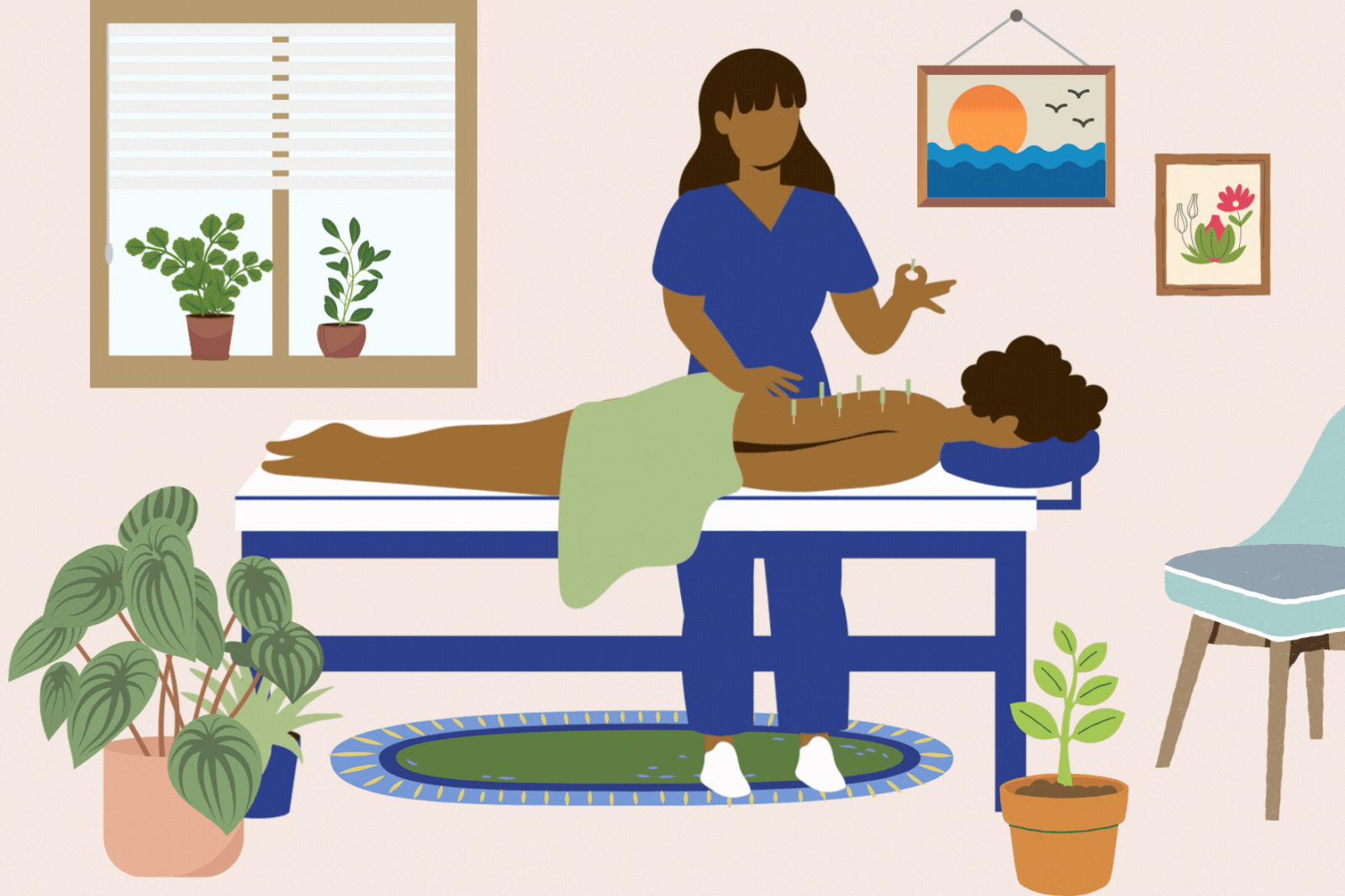Does Acupuncture Help You Sleep Better?

Whether it’s herbal teas, sleep gummies, or melatonin, many desperate insomniacs will turn to various methods in the quest for better sleep. Could one ancient practice be just the thing to help you catch more shut-eye?
Acupuncture is a traditional Chinese medicine technique that involves inserting thin needles into specific points on the body to promote healing and balance. It may sound scary, but it’s not. Most times people don’t even feel the needles. But can acupuncture actually help you sleep better? Let’s delve into how acupuncture works and explore the evidence supporting its benefits for sleep.
What Is Acupuncture?
Acupuncture has been practiced for thousands of years in traditional Chinese medicine (TCM). It is based on the concept of “qi” (pronounced “chee”), which is believed to be the vital energy or life force that flows through the body along pathways known as meridians. According to TCM, disruptions or imbalances in the flow of qi can lead to health issues, including sleep disturbances.
The practice of acupuncture involves inserting fine needles into specific points along these meridians to restore balance and promote healing. The goal is to correct imbalances, alleviate pain, and improve overall well-being.
Acupuncture and Sleep: The Connection
The relationship between acupuncture and sleep is gaining interest in both traditional and modern medicine. Here’s how acupuncture might help improve sleep:
Reduces Stress and Anxiety
Stress and anxiety are common culprits of poor sleep. Acupuncture is believed to stimulate the release of endorphins and other neurotransmitters that help regulate mood and reduce stress. By addressing these emotional and mental factors, acupuncture can help create a more conducive environment for restful sleep.
Balances the Body’s Systems
According to TCM, sleep disturbances often arise from imbalances within the body. Acupuncture aims to restore harmony to these systems, particularly those related to the liver, kidney, and heart. By addressing these imbalances, acupuncture may help resolve underlying issues contributing to sleep problems.
Improves Circulation
Proper blood flow is essential for overall health. Acupuncture can enhance circulation by dilating blood vessels and increasing blood flow to specific areas of the body. Improved circulation may aid in relaxation.
Regulates Sleep-Wake Cycles
Some studies suggest that acupuncture may help regulate circadian rhythms, the natural sleep-wake cycles that govern our sleep patterns. By influencing the body’s internal clock, acupuncture might help improve the quality and consistency of sleep.
Evidence Supporting Acupuncture for Sleep
Research into acupuncture’s effectiveness for improving sleep has shown promising results. While more extensive studies are needed, current evidence provides some insight into how acupuncture can be beneficial:
Clinical Studies
Several studies have examined the effects of acupuncture on sleep disorders, including insomnia and sleep disturbances associated with conditions like anxiety and depression. Many of these studies have found that acupuncture can lead to improvements in sleep quality, duration, and overall satisfaction. For example, a study published in the National Library of Medicine found that acupuncture was effective in reducing insomnia symptoms and improving sleep quality in patients with primary insomnia.
Mechanisms of Action
Research has also explored the mechanisms through which acupuncture may influence sleep. For instance, acupuncture has been shown to affect the levels of neurotransmitters and hormones involved in sleep regulation, such as melatonin and cortisol.
Patient Testimonials
Many individuals who have tried acupuncture report positive outcomes. While personal experiences are subjective, they often reflect the potential benefits of acupuncture in real-world settings.
What to Expect from Acupuncture for Sleep
If you’re considering acupuncture as a treatment for sleep issues, here’s what you can expect:
Initial Assessment
During your first visit, an acupuncturist will conduct a thorough assessment, which may include discussing your sleep patterns, medical history, and lifestyle factors. This evaluation helps the practitioner determine the best approach for your treatment.
Treatment Sessions
Acupuncture sessions typically last between 30 to 60 minutes. The acupuncturist will insert thin needles into specific points on your body, which may cause a mild sensation. Most people find the experience relaxing and may even fall asleep during the session.
Frequency of Treatment
The number of sessions required varies depending on individual needs and the severity of sleep issues. Some people notice improvements after just a few sessions, while others may require ongoing treatment to achieve and maintain better sleep.
Complementary Practices
Acupuncture is often used in conjunction with other therapies and lifestyle changes to enhance sleep quality. Incorporating relaxation techniques, exercising and eating well, and keeping up good sleep hygiene can further support your efforts to improve sleep.
Conclusion
While more research is needed to fully understand its efficacy, current evidence and patient experiences suggest that acupuncture can be a valuable tool in improving sleep quality. If you’re struggling with sleep problems and looking for alternative or complementary therapies, acupuncture might be worth exploring. As always, consult with a qualified acupuncturist or healthcare professional to determine if this treatment is right for you.
Why Trust Us?
At The Sleeping Institute, we're dedicated to transparency, impartiality, and accuracy in every article we publish. Our reviews are based on comprehensive analysis and firsthand experience. Staying current with the latest advancements in sleep technology, we offer up-to-date, reliable, and unbiased information to help you make informed decisions for a better night's rest. Let us be your trusted guide in the ever-evolving world of sleep technology!